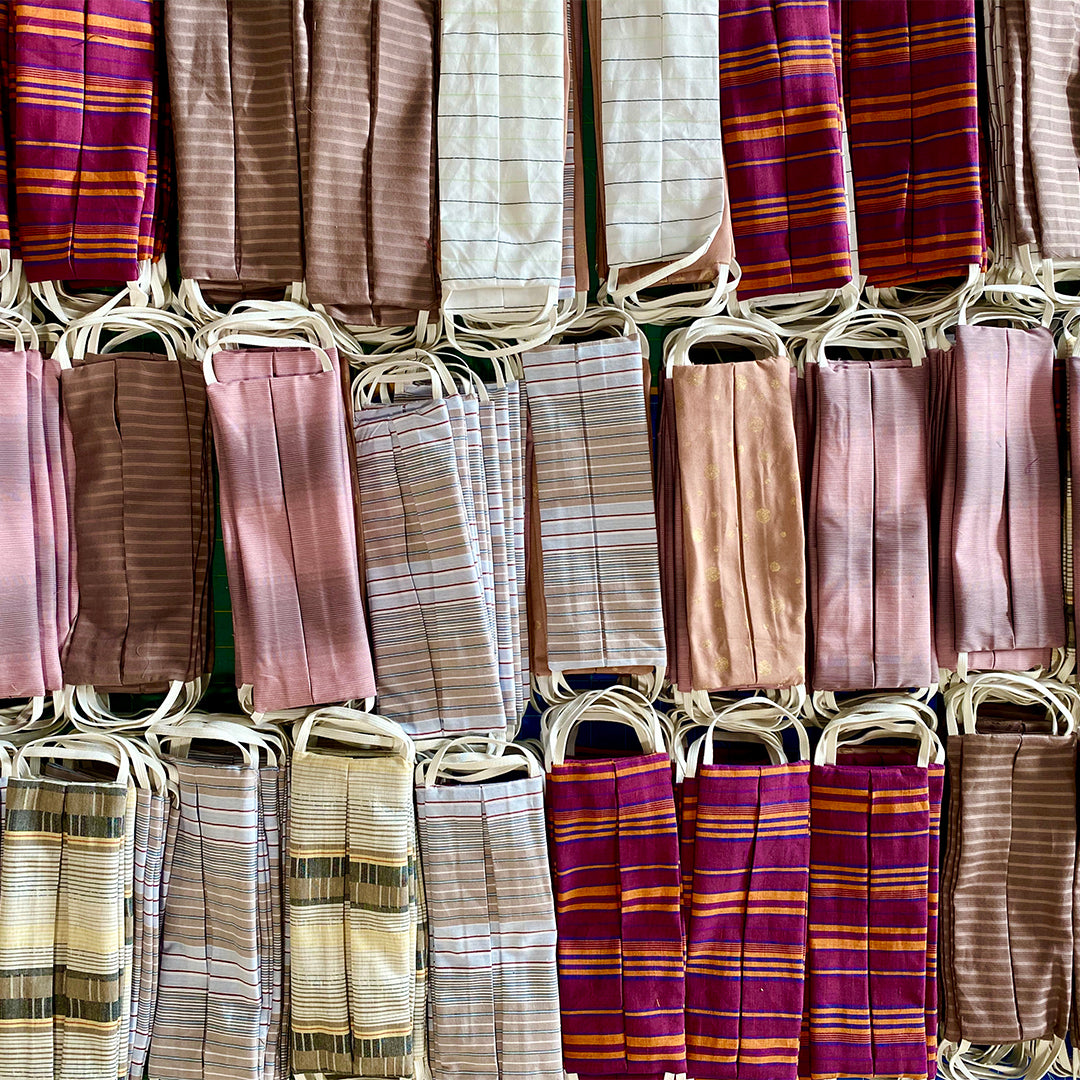
FACT: A cotton face mask is a non-medical grade mask and therefore does NOT provide you with 100% protection from contracting COVID-19.
So is there any point in wearing one?
------------------------
YES, fabric masks still serve a purpose
You only need to look at this image to see how contaminated our hands get every day as we go about our normal routines. Now that wouldn't be such a problem if we didn't then touch our faces but we do; over 500 times a day!!!
So, here's a question to ask yourself. Do you know who has touched every single surface or object that you come into contact with each day? Maybe you do within your own household but once you step outside, it becomes a whole different ball game.
In a nutshell, without a face mask, we are giving viruses and bacteria the opportunity to enter our body over 500 times a day. With a face mask, we are breaking that hand to face connection.
Because Good things come in small packages
Again, while we need to stress that fabric face masks do NOT protect the wearer from airborne COVID-19 particles entering the nose, mouth or eyes, they still do have some very worthy benefits.
Reusable face masks help to:
- Reduce anxiety levels when visiting essential services or outdoors
- Minimise face touching
- Capture droplets for those who are unwell and therefore help protect others
- Protect our environment - 100% reusable and washable rather than destined for landfill after one use
Wash Well, Wear Well
Please note that takecovernz cotton face masks (like all cotton masks) MUST WE WASHED BEFORE THEY ARE WORN. This is due to the many surfaces the cotton touches before we get the finished product to you.
Always remove your mask carefully. Do not reach under the mask with dirty hands. Touch dirty to dirty, clean to clean. Wash your hands and face immediately after removing your mask. For best results in cleaning your mask, wash in soap and hot water with 5% bleach.
Useful Link: How to put on and take off a face mask.
Other useful facts
How else do I protect myself and others from COVID-19?
By practising good hygiene:
- Covering coughs and sneezes with disposable tissues
- Washing hands for at least 20 seconds with water and soap and drying them thoroughly:
- before eating or handling food
- after using the toilet
- after coughing, sneezing, blowing your nose or wiping children’s noses
- after caring for sick people
- after dealing with pets
How is COVID-19 spread?
Like the flu, COVID-19 can be transmitted from person to person. The scientific evidence confirms that COVID-19 is spread by droplets. This means that when an infected person coughs, sneezes or talks, they may generate droplets containing the virus. These droplets are too large to stay in the air for long, so they quickly settle on surrounding surfaces.
Droplet-spread diseases can be spread by:
- coughing and sneezing
- close personal contact
- contact with an object or surface with viral particles on it and then touching your mouth, nose or eyes.
Get your facts from https://covid19.govt.nz/















